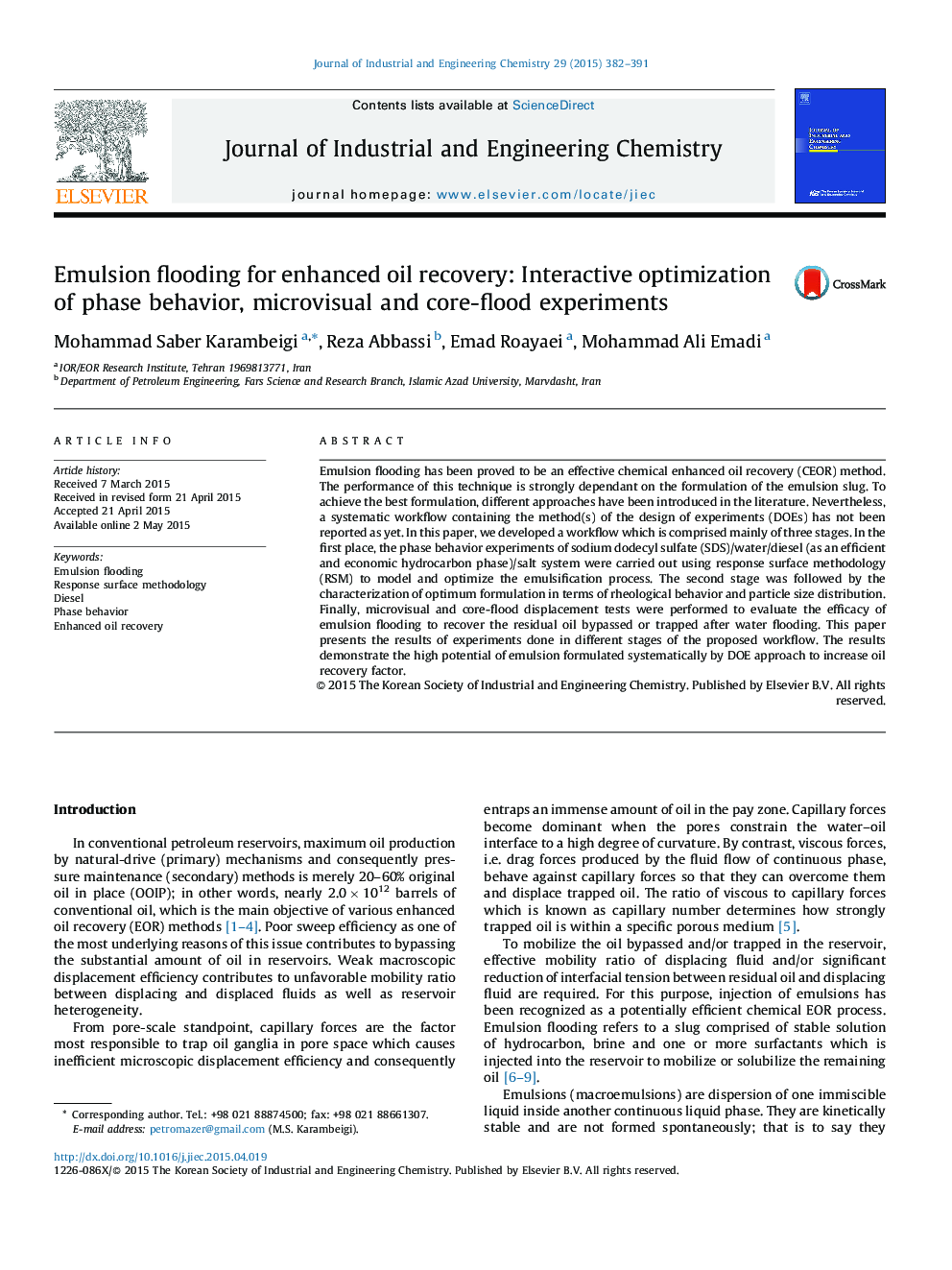| Article ID | Journal | Published Year | Pages | File Type |
|---|---|---|---|---|
| 228399 | Journal of Industrial and Engineering Chemistry | 2015 | 10 Pages |
•The interactions of different parameters on the phase behavior of SDS/diesel/brine were studied.•The most important factors were salinity, concentration of surfactant, and their interaction.•47% and 28% of EOR were observed in micromodel and core-flood experiments, respectively.•Diesel is an efficient source of hydrocarbon phase for emulsion preparation.
Emulsion flooding has been proved to be an effective chemical enhanced oil recovery (CEOR) method. The performance of this technique is strongly dependant on the formulation of the emulsion slug. To achieve the best formulation, different approaches have been introduced in the literature. Nevertheless, a systematic workflow containing the method(s) of the design of experiments (DOEs) has not been reported as yet. In this paper, we developed a workflow which is comprised mainly of three stages. In the first place, the phase behavior experiments of sodium dodecyl sulfate (SDS)/water/diesel (as an efficient and economic hydrocarbon phase)/salt system were carried out using response surface methodology (RSM) to model and optimize the emulsification process. The second stage was followed by the characterization of optimum formulation in terms of rheological behavior and particle size distribution. Finally, microvisual and core-flood displacement tests were performed to evaluate the efficacy of emulsion flooding to recover the residual oil bypassed or trapped after water flooding. This paper presents the results of experiments done in different stages of the proposed workflow. The results demonstrate the high potential of emulsion formulated systematically by DOE approach to increase oil recovery factor.
Graphical abstractResponse surface methodology (RSM) can provide a systematic study for the evaluation of chemical EOR processes.Figure optionsDownload full-size imageDownload as PowerPoint slide
